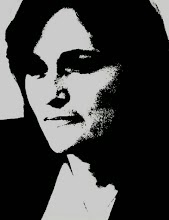I do sometimes find it tiresome hearing the same old refrains about the internet: 'oh, but it's full of rubbish', 'but there's some terrible misinformation online', 'yes but who has time for all this?'
Clearly I'm not alone. Jeff Jarvis does a good job collating some of his standard rebuttals:
There’s junk on the internet. True. There’s junk everywhere (even on bookshop shelves). The mistake is to think that the internet should be packaged and perfected, like media. It’s not media. Blogger Doc Searls, co-author of The Cluetrain Manifesto, says the web is instead a place where we talk and connect. In his 1996 Declaration of Independence of Cyberspace, John Perry Barlow called it “the new home of the mind.” The internet is life. Life is messy. Get used to it.
Most people watch junk. True. But “most” is a measurement that mattered only in the mass media economy, which is over. In our new mass of niches, we each may seek out and support what we like. Yes, we’ve all watched our silly flaming cat videos (not to mention Big Brother). But we’ve also watched moments of genius made possible by the internet. Why concentrate on the crap when brilliance is only a click away?
Anyone can say anything on the internet. True. And God bless it for that. That cacophony you hear is democracy and the free marketplace of ideas.
There are inaccuracies on the internet. True. But the web enables us to correct our mistakes - because nothing is finished there. With a link or a comment, we can also correct others. And thanks to Google, we can look up facts from many sources in an instant. I’d say the internet has given us a greater respect and facility for facts and has made us as a society more accurate.
Wikipedia has mistakes. True. So does this newspaper. Both are better at making corrections than books and encyclopedias. Wikipedia, like the web, has enabled an unprecedented collection of knowledge, passion, creation, and collaboration.
We need a seal of approval for internet content. False. The last thing we need is a system for certification. For who should have the authority to do it? Who would wield that shield in China, Iran, or Saudi Arabia? The web is not one-size-fits-all. Neither is knowledge.
Bloggers aren’t journalists. True and false. The Pew Internet & American Life survey says only a third of bloggers consider what they do journalism. But today any witness can perform an act of journalism, giving us more eyes on society - which journalists should celebrate.
People are rude on the internet. True. They’re rude in life, but perhaps more so online, thanks to anonymity. But we all know who the idiots are. The smart response is to ignore the stupid.
The internet has no ethics. True. It no more has a moral code than a telephone wire, a car, or a knife. We who use it bring the ethics and laws we live under already.
And in summary:
When you see nothing but junk, create quality. Where quality is hard to find, curate it, adding your own seal of approval with a link. When you read inaccuracies and misunderstandings, add facts, corrections, context and journalism. If people on the internet get things wrong, educate them. When you hear the noise of people talking online, listen. I know I come across as the internet triumphalist. Somebody has to.
Quite.
